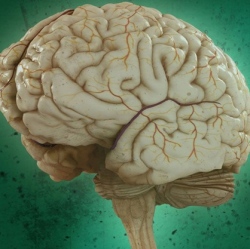
Non-invasive magnetic brain stimulation can be used to precisely improve a specific type of memory, remembering highly precise contextual and spatial information, Northwestern Medicine scientists shown for the first time. The new research could help in developing new treatments for people with brain injuries or dementia.
Precise memory (known as “recollection precision”), rather than general memory, is critical for knowing details such as the specific color, shape, and location of a building you are looking for, rather than simply knowing the part of town it’s in. This type of memory is crucial for normal functioning, and it is often lost in people with serious memory disorders.
Improving the spatial-precision-memory part of the brain
“We show that it is possible to target the portion of the brain responsible for this type of memory and to improve it,” said Voss. “People with brain injuries have problems with precise memory as do individuals with dementia, and so our findings could be useful in for these conditions.”
The scientists first used MRI to identify brain networks related to spatial precision memory. Then they stimulated the specific brain network responsible for spatial memory* with repetitive transcranial magnetic stimulation (rTMS), using powerful electromagnets. That allowed the scientists to improve the precision of people’s memory for identifying locations. This benefit lasted a full 24 hours after receiving stimulation and corresponded to changes in brain activity.
Most previous studies using noninvasive magnetic brain stimulation have found only very general and short-lived effects on thinking abilities, rather than highly specific and long-lasting effects on an ability such as precise memory. The scientists used detailed memory tests to show that this procedure actually improved spatial-precision memory; they used EEG to show that these memory improvements corresponded to indicators of improved brain network function.
The research was supported by grants from the National Institute of Mental Health, the National Institute on Aging and the National Institute of Neurological Disorders and Stroke, all of the National Institutes of Health.
